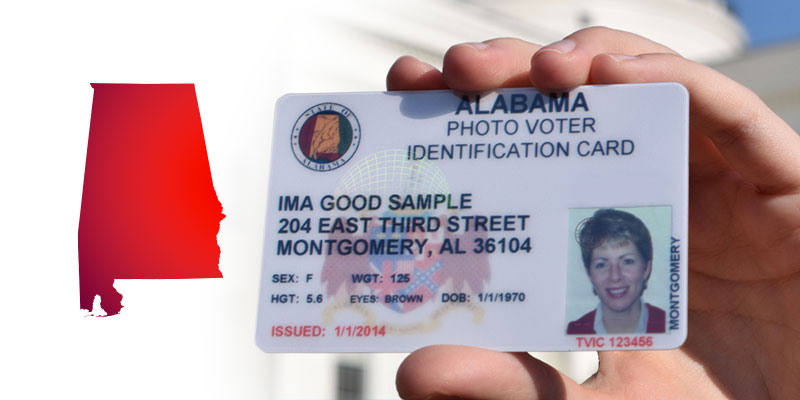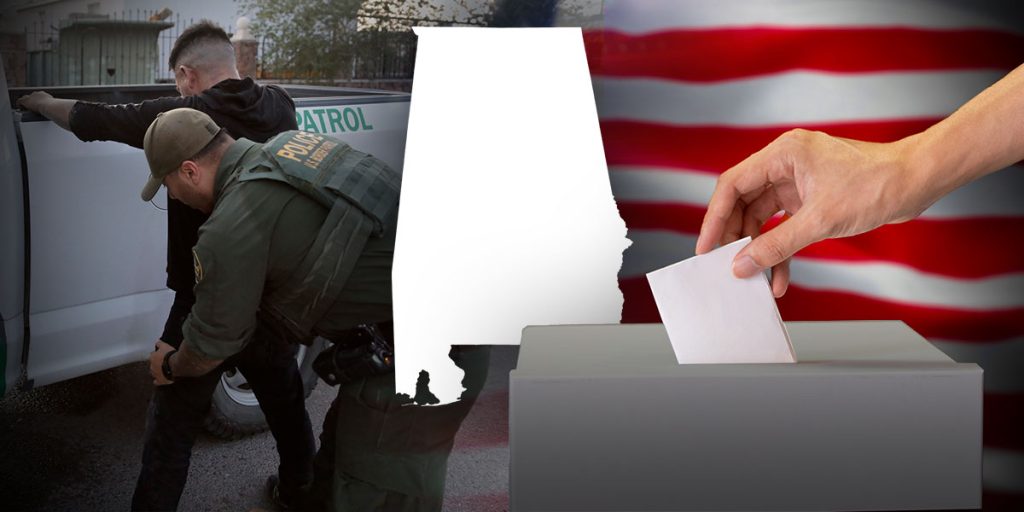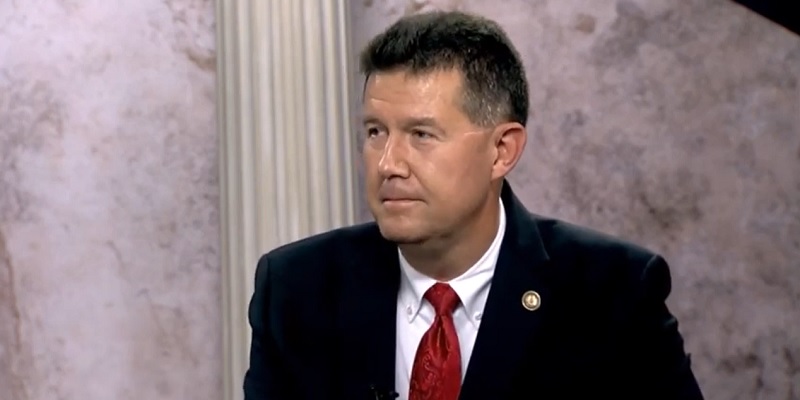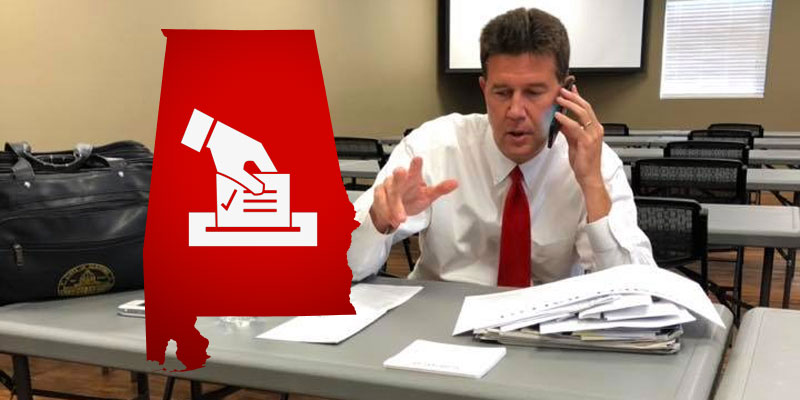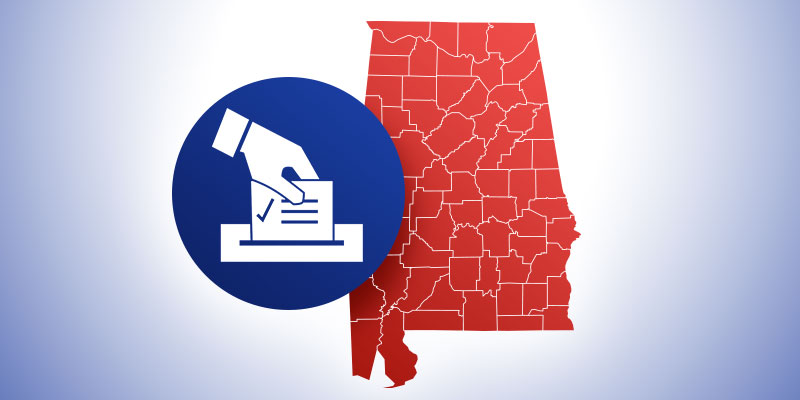The United States Court of Appeals for the 11th Circuit on Tuesday upheld Alabama’s photo voter identification law, which was originally enacted in 2011.
In a lengthy opinion written by Judge Lisa Branch and joined by Senior Judge Ed Carnes, the circuit court upheld a full summary judgment previously granted for the State of Alabama by a lower federal court.
Branch wrote that “no reasonable factfinder could find, based on the evidence presented, that Alabama’s voter ID law is discriminatory.”
Secretary of State John Merrill is the lead defendant in the case through his official capacity. Plaintiffs are led by the Alabama chapter of the NAACP.
The circuit court’s majority opinion summarized about the background of the case:
Plaintiffs filed this lawsuit, claiming the 2011 voter ID law violates the Fourteenth and Fifteenth Amendments of the Constitution, as well as Section 2 of the [Voting Rights Act], arguing the passage of the law was motivated by racial discrimination and that the law has a discriminatory effect. They also claim the “Positively Identify Provision” (“PIP”) constitutes an illegal “test or device” in violation of Section 201 of the VRA. Secretary Merrill denies these claims and argues that the law is constitutional, nondiscriminatory, and valid. He also argues that the PIP is valid and does not violate Section 201 of the VRA.
The district court found that Plaintiffs failed to show that the voter ID law in fact discriminates against Alabamians on the basis of race. Although it was undisputed that minority registered voters are statistically more likely than white voters to lack the required ID, the district court determined that “a person who does not have a photo ID today is not prevented from voting if he or she can easily get one, and it is so easy to get a photo ID in AL, no one is prevented from voting.” The district court concluded that no discriminatory impact existed because free IDs are issued in every county, or at an individual’s home, under conditions that any registered voter can meet.
The state law in question first went into effect for the June 2014 primary elections. You can read the latest photo ID guide from Merrill’s office here.
While the plaintiffs argued that the reasons for the photo voter ID law were partisan and racially motivated, the circuit court’s majority opinion said, “Secretary Merrill has provided valid neutral justifications (combatting voter fraud, increasing confidence in elections, and modernizing Alabama’s elections procedures) for the law’s passage.”
“Plaintiffs-Appellants have failed to show that the Alabama voter ID law was passed with a racially discriminatory intent or purpose,” the opinion added.
The circuit court’s majority further accused the plaintiffs of misusing data in trying to make their case. The plaintiffs had argued that black and Latino voters are about twice as likely as white voters to lack a valid voter photo ID. However, that was misleading, per the circuit court’s majority opinion.
“There is only a 1% difference between the ID possession rates of white and minority Alabama voters,” the opinion explained, using the very numbers stipulated to by the plaintiffs.
The opinion concluded, “The burden of providing a photo ID pursuant to Ala. Code § 17-9-30 in order to vote is a minimal burden on Alabama’s voters—especially when Alabama accepts so many different forms of photo ID and makes acquiring one simple and free for voters who lack a valid ID but wish to obtain one. The Alabama voter ID law does not violate the Fourteenth and Fifteenth Amendments of the Constitution, nor does it violate the Voting Rights Act. Because Plaintiffs have failed to identify any genuine disputes of material facts and because no reasonable factfinder could find that Alabama’s voter ID law is unconstitutionally discriminatory based on the evidence presented, we AFFIRM the decision of the district court.”
However, the opinion was not unanimous.
Judge Darrin Gayles, an appointee of President Barack Obama, dissented and seemed to argue that Alabama’s past history of racial discrimination should be a factor when judging their current laws and practices.
“Alabama’s history of enacting laws designed to suppress people of color is well-documented,” he wrote. “The majority opinion essentially argues that we should not penalize Alabama’s legislators for Alabama’s past; rather, we should start with a clean slate when reviewing the Photo ID Law. But this is not what the law commands us to do. Alabama’s history of voter suppression is relevant here and provides a wealth of direct and circumstantial evidence that should be considered at trial.”
Branch was appointed by President Donald Trump and Carnes was appointed by President George H.W. Bush.
You can read both opinions here.
Merrill reacts — ‘A major victory’
Merrill released a statement on Tuesday afternoon celebrating the circuit court decision.
“Today’s ruling by the Eleventh Circuit, affirming that the state’s photo ID law is constitutional, is a major victory for the security and integrity of elections in Alabama!” he exclaimed.
The secretary of state continued, “Photo ID is required when purchasing alcohol or tobacco products, operating a motor vehicle, checking into a flight, purchasing a gun, or booking a hotel. Voting is equally or more important than all of these other examples where a photo ID is required. I am grateful to the Northern District Court of Alabama and the Eleventh Circuit Court of Appeals who have confirmed what we already knew: ‘it is so easy to get a photo ID in Alabama, no one is prevented from voting.’”
“Through our annual visits to all 67 counties to register voters and issue free photo voter ID’s, multimedia campaigns to educate voters, and collaboration with local community leaders, notable Alabamians, and more, we have worked to see that every eligible resident of our state, who is interested, is registered to vote and has a photo ID. Our success has allowed us to shatter every record in the history of state for voter registration and voter participation,” Merrill further advised.
“Photo ID significantly reduces the potential for voter fraud to be committed, and we will remain dedicated to providing free, fair, and secure elections,” he concluded.
Marshall concurs
Alabama Attorney General Steve Marshall also reacted in a statement. His office argued the case for the State.
“Opponents have repeatedly argued that Alabama’s voter ID law’s requirement that a voter must provide a photo ID is overly burdensome,” the attorney general outlined. “As I have previously stated, Alabama’s voter identification law, by both design and practice, is easily satisfied, and it contains procedures to allow anyone who does not have a photo ID to obtain one. The appeals court in its opinion agreed.”
“My Constitutional Defense attorneys dedicated much of two years traveling the state of Alabama interviewing many witnesses including local election officials and private citizens in preparation to defend our voter ID law,” Marshall concluded. “I am very proud of their hard work as well as for the assistance of many individuals who gave of their time to help the State in preparation of our case.”
Sean Ross is the editor of Yellowhammer News. You can follow him on Twitter @sean_yhn




